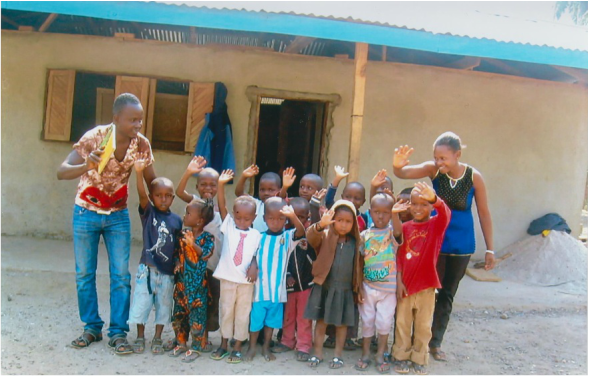|
Guest blog by Kim Kokett, early childhood teacher I’ve been thinking of the teachers we worked with—new to the profession of education but now with eyes open a little more to the power of the early childhood years. I’ve been reflecting on the questions the teachers asked during the learning process: When I think of Sierra Leone, I think of people with beautiful hearts who have a deep sense of community. And I was so very lucky to be a part of that community for a very brief time—it’s amazing how quickly a new place can feel like home. Photo by Kim Kokett
“What do you do if the child is just being stubborn?” This opened the door to talking about why children behave as they do-and there’s always a reason. Are they sad, mad, worried…? As a teacher, you can talk to the child and help figure out what’s really going on. “What do you do with a child all day?” This led to long discussions about the power of bringing in the natural world into a classroom. When we talked about the use of open-ended questions in a learning environment, the new teachers wondered: “What if the child doesn’t know the answer?” And to that, my response was, “That’s OK—they’re more capable of learning the answer than you might think.” We had a morning of classes for the teachers to receive some hands-on experience—and what a morning it was! Like many endeavors that are brand new, it took some time to get everyone settled in and sure of what to do next. But then, after a half-hour, I looked around and saw some really nice teaching happening. Teachers engaged with the children, teachers physically at the child’s level, teachers with expressive faces, teachers keeping the class flowing, teachers starting to see maybe that they can do this. The need for early childhood education in Sierra Leone is intense—as is the need for educational opportunities for all. We spent a day talking to mothers and grandmothers, kind women who were willing to spend hours in conversation despite all the other tasks in life that needed their attention. I quickly realized that for them to be able to express what they would like for their children’s education, the women had to express how strongly they felt about the lack of opportunities they had had for education. “How can I help my child learn to read and write if I can’t read and write?” A wise question indeed—and it led to asking how we can bring educational opportunities for the women into the classroom. If the community is serious about the value and need of educating the girl child, then the women who didn’t have the chance to go to school when they were girl children matter. I’ve looked at the photos I took a number of times—I’ve been showing them to a lot of people! And I look at the faces of all the people who took the time to say hello to us, to teach some words of Mende, and to bring everyone some bananas. And I hope to go back soon and see them again in person. As the woman who checked me in at Lungi airport said, my visa is good for years yet to come—so I must come back to visit them in Sierra Leone.
0 Comments
Leave a Reply. |
Archives
April 2022
Categories |


 RSS Feed
RSS Feed